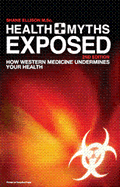By
Cris Putnam
April 9, 2013
NewsWithViews.com
Evolutionary biologists are stuck in a conundrum. Because the evidence for the naturalistic origin of life on Earth is so severely lacking, scientists have proposed that life was seeded here from outer space. The term for this idea, panspermia, derives from two Greek terms: pan, meaning “all,” and sperma, meaning “seed.” It’s actually an old idea. As discussed above, Louis Pasteur proved that spontaneous generation did not occur, but instead the air was full of bacteria, spores, and other forms of reproducing life. This suggested to a few biologists that outer space could be similarly endowed. Near the same time, Charles Darwin published On the Origin of Species, which promoted the notion that life was constantly evolving over time. These two nineteenth-century paradigm shifts led to conflicting conclusions regarding the origin of life. Pasteur believed that his work supported Divine Creation, but Darwinists thought that life probably evolved from nonlife.
However, when early primordial soup ideas fell into disrepute due to recognition of cell complexity in the early twentieth century, evolutionists postulated that life had never originated, but instead was eternal. Scientists like Englishman William Thomson (Lord) Kelvin and German Hermann von Helmholtz promoted the idea. For example, Helmholtz proposed in 1871:
It seems to me a perfectly just scientific procedure, if we, after the failure of all our attempts to produce organisms from lifeless matter, put the question whether life has had a beginning at all, or whether it is not as old as matter, and whether seeds have not been carried from one planet to another and have developed everywhere that they have fallen on a fertile soil.[1]
In like fashion, Svante Arrhenius, a Swedish scientist who won the Nobel Prize for chemistry in 1903, argued that life-producing spores “have been transplanted for eternal ages from solar system to solar system and from planet to planet of the same system.”[2] Accordingly, the early forms of undirected panspermia were based on an eternal universe born out of the need to avoid the origin of life entirely. This suggests that modern astrobiology is similarly motivated.
While former Vatican Observatory Research Group (VORG) director George Coyne has suggested that the “stars are God’s sperm,”[3] naturalistic panspermia faces serious challenges. First and foremost, life in space has never been shown to exist. But even if allowed for argument’s sake, only if the seeds are encased deeply inside mineralized rock for protection could their survival be deemed remotely possible. How this could occur is the focus of intense research.[4] Even though he denied the VORG’s current involvement in astrobiological research during an interview with the authors of Exo-Vaticana,[5] Vatican astronomer Guy Consolmagno, who specializes in meteors, indicated in 2004 that he was working with NASA astrobiologist Lynn Rothschild on whether meteorites are adequate for transporting life to earth.[6] Evidence suggests that some microbes can survive the radiation in space, but the intense heat of entry into the atmosphere still poses a serious challenge. This leads many to assume intelligent causation.
In 1973, directed panspermia was put forth by Nobel Prize-winning Dr. Francis Crick along with Dr. Leslie Orgel of the Salk Institute. This goes far beyond microbe carrying meteorites or wayfaring spores on holiday and we believe provides ample fodder for a diabolic ruse. The abstract of their famous paper, “Directed Panspermia,” reads:
It now seems unlikely that extraterrestrial living organisms could have reached the earth either as spores driven by the radiation pressure from another star or as living organisms imbedded in a meteorite. As an alternative to these nineteenth-century mechanisms, we have considered Directed Panspermia, the theory that organisms were deliberately transmitted to the earth by intelligent beings on another planet. We conclude that it is possible that life reached the earth in this way, but that the scientific evidence is inadequate at the present time to say anything about the probability. We draw attention to the kinds of evidence that might throw additional light on the topic.[7]
They go on to suggest that life could have “started on Earth as a result of infection by microorganisms sent here deliberately by a technological society on another planet, by means of a special long-range unmanned spaceship.”[8] It is important to note that Crick and Orgel were driven toward this fantastic notion because of their doubt that random evolutionary processes could account for the complexity of the recently discovered DNA molecule, and we believe that the problem has not significantly changed since. Consequently, directed panspermia is gaining traction, especially in popular parlance.
Delano: Life on earth spawned from ET refuse heap!
In Exo-Vaticana’s chapter on astrobiology, we refer to the work of Dr. Michael Heiser, who speculates that scientific evidence seeming to affirm that life on Earth was seeded from space could potentially inspire an inclusivist global religion. In regard to panspermia, he wrote, “It will be the paradigm that allows the atheist to tolerate religion, and allows literalist Bible-readers, the eastern Buddhist, and the pagan to simultaneously parse the new science the same way.
| Subscribe to the NewsWithViews Daily News Alerts! |
This might in turn be useful fodder for a global religion.”[9] A Catholic priest and astronomer, Kenneth J. Delano, wrote in an officially sanctioned Catholic book on Extraterrestrial Intelligence (ETI), “Our religious sensitivities ought not be shocked by the idea that the evolutionary history of the human body might be traced back ultimately to a primordial refuse heap left by visiting ETI when Earth was young.”[10] In other words, we might have evolved from ancient alien garbage. He adds, “No great theological difficulty should present itself if we discover that ETI played an important part in the formation of the human race.”[11] Based on this pseudoscientific foundation and the work of theologians like Teilhard Chardin, Thomas O’Mera, Giuseppe Tanzella-Nitti, and Karl Rahner, Roman Catholicism has the scientific and theological structures in place to lead the charge to an alien inspired global religion. Read Exo-Vaticana to learn more.
� 2013 Cris Putnam - All Rights Reserved
Footnotes:
1.
Helmholtz, Populare Wissenschaftliche Vortrage. vol. iii., (Braunschweig,
1876), 101; as quoted in Svante Arrhenius, Worlds in the Making: the Evolution
of the Universe (New York, NY: Harper Brothers, 1908), xiv.
2.
Svante Arrhenius, Worlds in the Making: the Evolution of the Universe
(New York, NY: Harper Brothers, 1908), 229.
3.
Margaret Wertheim “Looking
for GOD and ALIENS,” Science & Spirit magazine (2002), last
accessed January 19, 2013.
4.
Gerda Horneck, “Surviving the Final Frontier” Astrobiology
magazine, November 25, 2002.
5.
“No one at the Vatican Observatory is currently directly involved
in astrobiology research; there are some of us who have worked in the
field of exoplanets.” Email correspondence between Guy Consolmagno
and Tom Horn/Cris Putnam dated November 5, 2012.
6.
Henry Bortman, “Interview
with Brother Guy Consolmagno” Astrobiology magazine, May 12,
2004.
7.
F. H. Crick and L. E. Orgel, “Directed Panspermia,” Icarus
19 (1973), 341–348.
8.
F. H. Crick and L. E. Orgel, “Directed Panspermia,” 343.
9.
Dr. Michael Heiser, “Panspermia,” in How to Overcome, Kindle
locations 4078–4080.
10.
Kenneth J. Delano, Many Worlds, One God (Hicksville, NY: Exposition Press,
1977), 105.
11.
Ibid., 106.
Cris D. Putnam is a bestselling co-author of Petrus Romanus the Final Pope is Here and Christian apologist. He holds a Masters in Theological Studies from Liberty Baptist Theological Seminary and a a Certification in Christian Apologetics from BIOLA University as well as a B.S. in religion and mathematics. He is recognized for expertise in the area of Christian apologetics, biblical prophecy and other prophetic traditions. In that regard, he has been interviewed on Prophecy in the News, as an expert for the television show Countdown to Apocalypse on The History Channel and in Canada for I Prophesy: The Future Revealed. He has also appeared on many major radio programs and podcasts across the country. He is a member of the International Society of Christian Apologetics, the Evangelical Philosophical Society and the Tau Sigma National Honor Society.
Website: www.logosapologia.org
E-Mail:
logosapologia@gmail.com











 Share
This Article
Share
This Article




